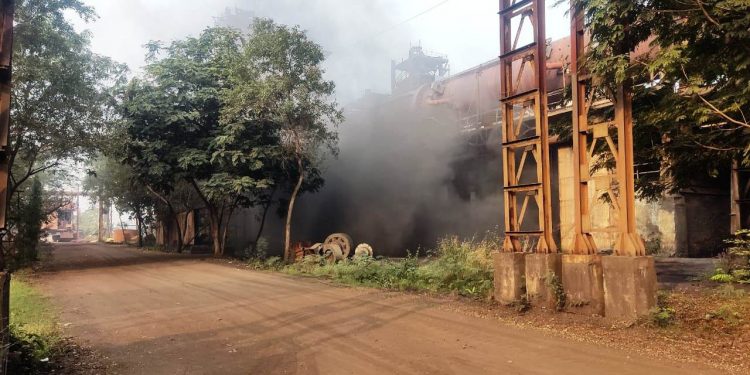Jajpur: Despite the growing concern over climate change, air and water pollution is reportedly spiraling in major towns and industrial areas in the state.
The state government has taken up a host of measures to tackle the pollution-related issues, to alleviate green house effects and carbon footprints, as Odisha has faced frequent disasters owing to climate change, a report said.
If climate experts are to be believed, frequent cyclones, extreme drought conditions, rise of sea level and prolonged heatwave conditions are likely to be the new threats for people in future.
Minister of Forest, Environment and Climate Change Bikram Keshari Arukh had hinted about such threats while replying to a query of MLA Mohan Charan Majhi in the Assembly recently.
The minister also put forth a report detailing various programmes being executed by the Odisha State Pollution Control Board (OSPCB) to tackle pollution and other issues.
Scores of industrial units have mushroomed up in various districts of the state with intention of pushing the development agenda and creating wider scope of employment.
On the one hand, the Forest department has emphaised on protection and regeneration of green cover and the environment, on the other hand, the government is encouraging private players to set up industries at the cost of forests and environment.
In many cases, it is seen that the administration, the SPCB and other agencies fail to act against industries that are throwing all norms to the winds.
A report of the National Green Tribunal (NGT) says seven towns of Odisha are among the 106 cities in the country that have been placed in the list of highly polluted cities.
The highly polluted towns in the state include Kalinganagar Industrial area in Jajpur, Paradip, Talcher, Angul and Sambalpur. In 2020, Greenpeace had conducted a survey on polluted cities in 100 countries.
In the survey list of highly polluted cities, Paradip was placed at 79th position; Kalinganagar at 84th; Rourkela at 85th; Cuttack at 88th and Talcher at 93rd.
The air pollution report of the OSPCB (from August to October) stated that presence of particulate matter in the air of Kalinganagar, Talcher, Rajgangpur and Rourela is much higher than the permissible limits.
However, sulphide oxide (SO2), nitro oxide (NO2) and fine particulate (PM-2) are within their permissible limits in the atmosphere in these areas.
To make use of industrial waste, the OSPCB has set up fly ash resource centres with a capacity of 35.5 MTPA in 2020-21.
Besides plantation in the industrial and mining areas, the OSPCB has planned to set up IREMP in Angul-Talcher, Sambalpur-Jharsuguda and Paradip.
The report stated that Rs 10 lakh has been utilised for various measures to contain green house effects and carbon blue prints.
PNN






































